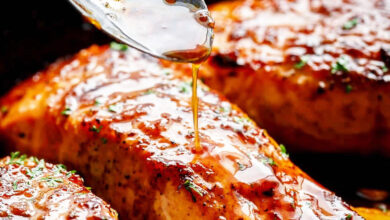The Bodybuilder’s Guide To Eating Eggs

Eggs are a constant source of research and differing opinion, since they are such a staple food for millions of us, but much of the information that is written about eggs is focussed on “regular” people and only looks at topics such as cholesterol as relates to heart disease, or simply how many calories are inside the shell. In the bodybuilding world, eggs represent a chance to pack on protein and build muscle-mass, so what we really want to know is how effective they are in terms of building muscle. But eggs are also made of both the yolk and the white, and trying to understand the pros and cons of each can be more complex than trying to put Humpy Dumpty back together again.
So here, M&F takes a deep dive into what eggs mean for bodybuilders and athletes, taking into account how many eggs we should eat, and just what to do with the yellow stuff.
Why Are Eggs so Important to Bodybuilders in the First Place?
Guoda Karoblyte has a degree in food and human nutrition, a masters in diabetes, and is currently studying for a Ph.D. in nutrition and metabolism. He also runs “The Metabolic Kitchen” Instagram account. Karoblyte says that he sees “metabolic” foods as those that have a positive impact on metabolism, and he says that eggs fit the bill because they provide protein for muscle and tissue growth. Additionally, he says that eggs are nutrient dense and offer plenty of vitamins and minerals. The yolk itself is high in vitamins A, D, E, K and just like the eggs white, is also high in numerous B vitamins, including B12; essential for cell metabolism, red blood cell formation, and nerve function.
“Eggs are a source of protein, and can therefore be beneficial for body composition,” says Karoblyte. “High-protein diets stimulate muscle growth and promote fat loss, benefiting metabolic health.”
What Are the Benefits of Egg Yolks for Bodybuilders?
For decades, bodybuilders and those seeking to look “ripped” have kicked the egg yolk to the curb in a bid to cut the calories associated with the yellow stuff. Based on a medium sized egg, the white contains around 15 calories, while the yolk has a relatively hefty 52 calories. Those who studied “Bro Science” figured that since the egg white is high in protein (10g per 100g) and is greater in volume, they could afford to ditch the yolk despite it actually being higher in protein (16.4g per 100g). (source: ) To add to the yolks’ woes, scientists in the 50s began to make assumptions around the cholesterol content.
“Scientists were trying to figure out what exactly causes heart disease,” explains Karoblyte. “The hypothesis was that cholesterol from food would increase levels of cholesterol in the blood, which would accumulate in the arteries and cause the build-up of plaques (through a process known as atherosclerosis). I completely disagree with this notion that eggs should be avoided to reduce heart disease risk. In fact, this recommendation is so outdated that even current dietary guidelines no longer list cholesterol as a nutrient of concern. We now know that dietary cholesterol has little impact on cholesterol in the blood, as most of our cholesterol is produced in the liver. The whole conversation over what causes heart disease is also a lot more complex than ‘cholesterol clogs the arteries,’ as there are a lot of different risk factors involved.
“While so many people still vilify egg yolks due to their cholesterol content, numerous studies have actually found whole eggs to exert a positive effect of on blood lipids, raising levels of the ‘good’ HDL cholesterol.” While cholesterol is a foodstuff that has gotten a bad rap, for bodybuilders it is essential and is required for producing anabolic hormones. Macauley Owen has an MSc in sport and exercise nutrition. He’s also a professional boxer with a record of 6-0-0. For him, the whole egg is king. “Our bodies need fats to keep bodily functions working efficiently,” he tells M&F. “Fats have a major role in the transportation of vitamins and maintaining hormone regulation. Also, with the majority of the fats in eggs being unsaturated, benefits come from things like the anti-inflammatory effects and increases in membrane fluidity, leading to enhanced sensitivity to muscle protein synthesis after consuming omega-3 fatty acids. The only time I would take the yolk out of an egg is when restricting my calories to make specific weight class. In this case I would have 3-4 eggs but halve the yolks included. This eases the load on my calorie targets while still consuming a high-quality source of protein and getting a small amount of healthier fats.”
Can eating eggs raise our testosterone levels? Both the whites and the yolks have been found to increase testosterone, but the yolks more so. “One study found that men who consumed three whole eggs per day for 12 weeks, combined with a resistance training program, had increased testosterone levels when compared to a group that ate six egg whites instead,” explains Karoblyte.
Testosterone is an important hormone for muscle growth and strength but Karoblyte points out, surprisingly, that that the higher level of testosterone in the yolk set didn’t result in more muscle-mass when compared to the egg white group. Work is ongoing in this limited area of research, but serves to show the value of both the egg white and the yolk in terms of muscle building.
How Many Eggs Can We Safely Eat?
“In 1968, the AHA made the recommendation to limit whole eggs to no more than 3 per week due to the high cholesterol content of the yolk,” says Karoblyte. Of course, such a recommendation seems laughable now. Bodybuilders throw down eggs like they are going out of fashion and legends like Jay Cutler are on record as saying he ate up to 140 eggs whites per day… no mean feat in the days before liquid egg whites were available in a bottle!
“We do not have studies showing that eating more than the typical 2-3 eggs per day leads to no health risks in the long term, but there is also no good research to suggest that it is unsafe to go above this amount,” says Karoblyte. “My mantra is to assume that whole foods are innocent until proven otherwise, so setting a limit on how many eggs we consume is not justifiable. It’s not like there is a set limit for ultra-processed foods, so why would there be such a specific recommendation for one of the most nutritious foods out there? I would not advise everyone to go crazy with their egg consumption however, as I am a proponent of keeping protein sources varied. Still, eating larger quantities of eggs can certainly help people to meet their protein requirements. 25-30g of protein per meal is a good target for most people, which is approximately 4-5 eggs. This should be one of many meal variations.
It is also important to note that eggs can increase concentrations of LDL cholesterol (the “bad” cholesterol) in some people (termed hyper responders), and high LDL is proposed to be a major culprit in heart disease development. However, egg yolk consumption proportionally raises the “good” HDL cholesterol, keeping the LDL:HDL ratio (a much better predictor of heart disease than LDL concentrations alone) unchanged. As previously mentioned, egg consumption also increases the size of LDL particles, making them less likely to stick to the artery walls.
So, why then do we so often hear of studies that show eggs are linked to heart disease and diabetes in the media? The studies that are cited in these clickbait articles are known as observational. Using this type of design in nutrition research comes with many flaws, and these types of studies can only detect associations, and not what is actually contributing to poor metabolic health. One major issue with observational research in nutrition is healthy user bias, which means that individuals who avoid foods that are considered unhealthy (like eggs have been for so many years) also practice many other healthy behaviors (like exercising more, sleeping better, managing stress), which makes the interpretation of the results very difficult.
Cracking the Case for Eggs
There you have it. Eating both the egg white and the yolk can increase testosterone levels with current data suggesting the resulting muscle mass is around the same from eating a whole egg versus egg whites. This is likely due to the fact that while eggs help with testosterone levels, there are many factors at play that will determine your overall hormone and muscle status. While keeping the yolk will result in consuming more calories, data suggests that is is a great way to add additional vitamins and healthy fats to your regime, and is perfectly safe to eat at a level of at least four to five eggs per day, and probably much more depending on your own nutrient demands and individual tolerance. You might never reach the quantities that Jay Cutler was consuming, but cracking open a few more eggs should likely supplement your performance in a big way.




